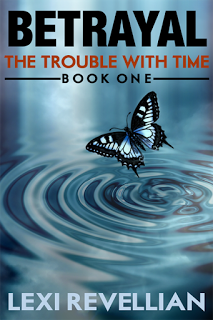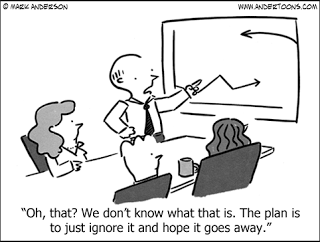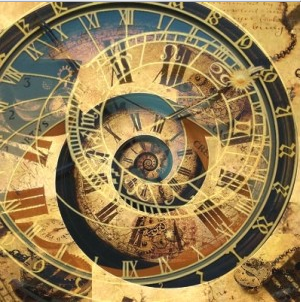Lexi Revellian's Blog, page 5
November 20, 2015
Reason for Amazon's success - everyone else is rubbish
 At the funeral of an old friend of mine, a great guy called Charlie Feathers, someone told a story about him from the 1980s. Charlie had recently done work for several rich and famous people, the latest being Adam Ant, and his friend asked him how he got these jobs.
At the funeral of an old friend of mine, a great guy called Charlie Feathers, someone told a story about him from the 1980s. Charlie had recently done work for several rich and famous people, the latest being Adam Ant, and his friend asked him how he got these jobs."Because everyone else is rubbish," Charlie replied.
This is the secret of Amazon's success, too, particularly when compared with Big Publishing, who are spectacularly rubbish at what they do, and only got away with it for so many years because they had a monopsony. So many businesses don't really care about the customer, tick boxes instead of doing a good job, fail to apply their intelligence to what they do, and generally don't bother.
Consider my experience in the past week:
I ordered sample tiles from Walls and Floors. Instead of the two square blue tiles ordered, two rectangular tiles in cream and green arrived. DX claimed via email to have redelivered the (I hope) corrected order yesterday, when I was in my workshop all day. I asked my neighbours in the building. Zilch. I chased DX. Apparently they didn't deliver yesterday after all, and I will now have to wait till Monday.My gas supplier wants to check my home gas meter for obscure safety reasons. They will only give 'appointments' of a five hour window. They seriously expect me, as a self-employed person, to waste half a day sitting around unpaid at home because they cannot be bothered to organize a tighter schedule. Ocado manages to give an hour's window for grocery deliveries, and rings if running late or early. Why won't Lowri Beck Services?
Meanwhile Amazon has started same day deliveries in London. I can't be alone in finding myself purchasing more from Amazon and less from everybody else. The makeup remover that the chemist down the road no longer stocks? Amazon has it. The palm sander pads for which my local Leyland charges £6.98 for 5 sheets? Amazon offers 20 for £9.99, with free delivery, or 6 generic for £1.99. Waitrose has stopped selling bean sprouts - but Amazon sells beans for sprouting. I could go on.
Any business feeling threatened by Amazon might usefully consider upping its game. Or shutting up shop.
Published on November 20, 2015 03:12
November 11, 2015
Time Rats, animatronics and robots
I've been researching robots and androids for the second book in my Time Rats series (first book available soon). I was amazed with what is already out there. See this video:
These skilful imitations of animals increase one's appreciation of the natural world - and make me brood on the threat it faces from ever-growing numbers of humans. The increase of Africa's population alone is forecast to be 1.3 billion by 2050, the date in which much of my novel is set.
It would be a sad thing indeed if the only big cats in fifty years' time were robotic.
These skilful imitations of animals increase one's appreciation of the natural world - and make me brood on the threat it faces from ever-growing numbers of humans. The increase of Africa's population alone is forecast to be 1.3 billion by 2050, the date in which much of my novel is set.
It would be a sad thing indeed if the only big cats in fifty years' time were robotic.
Published on November 11, 2015 12:10
October 12, 2015
Finished my time travel novel, woop woop!
 I've just written the last page of the last chapter of my time travel novel, currently called The Trouble with Time. (Or that may be the name of the series, as I intend to write more books about the same characters.)
I've just written the last page of the last chapter of my time travel novel, currently called The Trouble with Time. (Or that may be the name of the series, as I intend to write more books about the same characters.)It's always satisfying to reach the end of a book, though of course it still has to go out to beta readers, once my sister, a sort of pre-beta, has read it. I have yet to put it through Pro Writing Aid, to catch word echoes I've missed.
I'm a relatively slow writer, and this novel has taken me longer than normal, partly because of the day job, and partly because the offspring and her fiancé have been buying a small flat in London - which if you don't have much money is a task about as easy as finding the Holy Grail. She's been saving for years, and studying the market to a point where if she went on Mastermind, specialist subject The Cheaper End of the London Property Market, 2013-2015, she'd ace it. They're living in my workshop while wrangling builders. The whole thing has been taking a lot out of all of us.
So that's my excuse for averaging 225 words a day on this novel. Plus, as I've grumbled before, time travel logistics scramble the brain.
This is the cover I made for Write On, but I'm going to experiment with other options before publishing, and maybe get my trusty blog readers to vote for their favourite.
Published on October 12, 2015 03:25
July 9, 2015
More thoughts on Kindle Edition Normalized Page Count

I really approve of KENPC (though goodness me, did they put any thought at all into that clunky acronym?) There is, however a downside.
Any less than best-selling author can follow a reader's progress through his book.
I was gratified when an anonymous reader powered through Replica in a day. But what about the reader who reached page 338 of Ice Diaries then apparently wandered off? I do hope he/she is all right, and didn't walk under a bus while engrossed in Tori's struggle to survive. Worst of all, though, is the person who read three pages of Remix four days ago and no more since.
There is only one solution to this. I need to sell as many books as Hugh Howey, then the daily pages read figure will be so stratospheric that I won't be able to discern individual readers who fail to finish my novels.
Right. I'm off to work on this.
Published on July 09, 2015 01:56
July 2, 2015
Amazon makes KU payouts fairer; some writers miffed
 Yesterday Amazon's Kindle Unlimited lending library started paying authors a different way.
Yesterday Amazon's Kindle Unlimited lending library started paying authors a different way.Instead of payment per book once the reader had reached the 10% mark, authors are paid for each page that is read. You can read about it here. Books' pages are worked out by a uniform system, the Kindle Edition Normalized Page Count (KENPC v1.0). Clever old Amazon, no doubt anticipating a flood of aggrieved emails, has made these smaller than a normal page; my novel Replica is 287 pages long, but 452 KENPs.
This system rewards writers who write full-length novels that grip readers. Shorter works, and books that readers don't finish, will loose out. This is fairer, right?
You'd never think so from the wails and moans rising from parts of the press and some authors. You'd never think putting your books in KU was optional.
Erotica shorts authors knew it was going to be bad. I just don’t think most of them thought it was going to be quite *this* bad. Because it looks as if authors will be making about $0.0057 per page. That’s slightly less than half a penny a page, folks.
Selena Kitt
(I think erotica tends to be on the short side.)
From The Guardian:
Casey Lucas, a literary editor who works with self-publishing authors, says she has lost six clients already. They have decided to stop writing after “estimating a 60–80% reduction in royalties”. A lot of self-published romance authors are disabled, stay-at-home mums, or even a few returned veterans who work in the field because a regular job just isn’t something they can handle,” she says. “People are shedding a lot of tears over this.”
Oh no! Wicked Amazon is ripping off the disabled and disadvantaged! Writers are being forced to stop writing!
Amazon's KU fund for July will be at least $11 million. If the new system encourages some writers to leave KU, there will be more for the rest of us. Always supposing that readers actually read our books after borrowing them, that is.
Published on July 02, 2015 13:20
June 22, 2015
Woohoo, 60,000 words!
 Today the work in progress hit the 60,000 word mark, which is my personal point of no return (see this blog post) and a cause for celebration, even though there's a way to go before I write THE END.
Today the work in progress hit the 60,000 word mark, which is my personal point of no return (see this blog post) and a cause for celebration, even though there's a way to go before I write THE END.The novel is a time travel story, which I hope will turn out to be the start of a series. Time travel is tricky and confusing to write about and can make your brain go all squishy.
I like to have the end of the book decided before I start writing, and I've just realized I have to change it since it would fall foul of the grandfather paradox and my clever readers would notice.
It's not the first time I've changed the end of a novel at the last minute. I could see that the ending I'd planned for Replica was going to be predictable and possibly a bit dull, so I spent three weeks furiously mulling over alternatives. A few readers hate the ending I came up with, though I find it entirely satisfying. Most are taken by surprise - this may be an incidental advantage of changing the end well into writing the book.
Back to work. That ending won't write itself. Now, if only I had a time machine, I could whiz into the future and bring a copy back here and save myself a lot of effort...
Published on June 22, 2015 05:15
May 24, 2015
READERS in the KNOW - Replica podcast
Readers in the Know is a handy website to help readers find good books at bargain prices (see brief video below).
Simon Denman, its founder, makes short podcasts reading scenes from books on his site to promote them, and he's just done an extract of my novel, Replica . I got to choose which scene he read. I didn't want to strain his thespian talents by giving him a passage in female POV; in the end I chose the scene in which Nick, MI5 agent, seduces Beth one snowy night in London when he's supposed to be outside in a van covertly watching her door.
I think Simon reads it really well. Go to the page, and you will find lots more extracts from other novels to listen to.
Find out more about Readers in the Know in 58 seconds:
Published on May 24, 2015 04:34
May 5, 2015
Google Alerts, piracy, poverty and politicians
Google Alerts isn't what it used to be. Once it actually worked, and now it just occasionally informs me that I have written a blog post. But last week it made a bit of an effort, and alerted me to a forum where a reader was asking where she could download
Ice Diaries
free. The forum was quite strange, as some of the time it pretended to be KUF, the Kindle Users' Forum, and sometimes came up as The Comic Book Forum - but don't let's get sidetracked.
I'm trying to decide what I think about illegal downloads. Neil Gaiman famously believes that piracy boosts sales; but he's in a different league from me where maybe the rules are different too. My novels cost £1.99 or $2.99, which is reasonably affordable for most. Not for everyone, though. Some people really don't have any spare money to buy books, and if the choice is between their reading an illegal free copy of one of my novels, or not reading my writing at all, I'd go for being read.
I've blogged before about poor heroes being more appealing than rich ones, and this is often true in real life as well. It's more difficult to like rich people, as they are free of so many of most people's daily concerns. I still grit my teeth over Shirley Williams saying she didn't know why people were always going on about money - she never thought about it at all. Nor did she need to.
One problem with politicians these days is that they have never experienced poverty - but not only do they think themselves underpaid (huh!) they wrongly believe they know, from observation, what it is like to have no money. It is not possible to know what poverty is like without being poor. In my opinion, everyone should spend a year or two being a bit broke, as they will be better for it and have empathy for the have-nots for the rest of their lives.
I do worry though that if too many people get into the habit of illegally downloading books, authors will earn even less than they do now. Still, at least we'll be able to write poor heroes and heroines with real conviction and inside knowledge...
I'm trying to decide what I think about illegal downloads. Neil Gaiman famously believes that piracy boosts sales; but he's in a different league from me where maybe the rules are different too. My novels cost £1.99 or $2.99, which is reasonably affordable for most. Not for everyone, though. Some people really don't have any spare money to buy books, and if the choice is between their reading an illegal free copy of one of my novels, or not reading my writing at all, I'd go for being read.
I've blogged before about poor heroes being more appealing than rich ones, and this is often true in real life as well. It's more difficult to like rich people, as they are free of so many of most people's daily concerns. I still grit my teeth over Shirley Williams saying she didn't know why people were always going on about money - she never thought about it at all. Nor did she need to.
One problem with politicians these days is that they have never experienced poverty - but not only do they think themselves underpaid (huh!) they wrongly believe they know, from observation, what it is like to have no money. It is not possible to know what poverty is like without being poor. In my opinion, everyone should spend a year or two being a bit broke, as they will be better for it and have empathy for the have-nots for the rest of their lives.
I do worry though that if too many people get into the habit of illegally downloading books, authors will earn even less than they do now. Still, at least we'll be able to write poor heroes and heroines with real conviction and inside knowledge...
Published on May 05, 2015 04:19
March 29, 2015
Conflict - a pain in life, essential in fiction...

...or why bad things need to happen to your characters, especially the nice ones.
Consider the following:
Romeo meets Juliet and they instantly fall for each other. After initial reservations, the Montagues and Capulets agree to the match. Romeo and Juliet get married and live happily ever after.
Mr Darcy, while visiting his friend Mr Bingley, comes across the poor but bewitching Elizabeth Bennett. He cannot overcome his passion for her, and proposes. She realizes that beneath a chilly façade, he's not only hot but a good egg. They get married etc..
To his consternation, Hamlet finds his mother has married his uncle quite soon after her husband's death. However, he reflects that she has a right to find happiness again, and he's in no hurry to start the tedious business of ruling a kingdom. He finds consolation in the beautiful Ophelia. They get married etc..
On arrival at Manderley, the second Mrs de Winter perceives Mrs Danvers will be nothing but trouble, so persuades Maxim to retire her, leaving them to enjoy their new life together in the beautiful house.You get my drift. Are you feeling restive yet?
If fiction is not to be bland and boring, your characters must struggle against a tide of misfortune, betrayal, and misunderstanding. Villains are out to get them. Bad turns to worse.
The hero and heroine must earn their happy ending.
Published on March 29, 2015 06:55
January 30, 2015
Time travel bartering...
 A character in my WIP is recalling when, having got his hands on a time travel device, he attempted to visit the Colosseum and see the gladiators. Before going, he researched and purchased a toga and sandals, so he could pass in a crowd. He thought his public-school Latin might come in handy. And he took some items to barter, because he wasn't sure if you had to pay an entrance fee to the Colosseum (coincidentally, neither am I). Needless to say, the trip did not go well.
A character in my WIP is recalling when, having got his hands on a time travel device, he attempted to visit the Colosseum and see the gladiators. Before going, he researched and purchased a toga and sandals, so he could pass in a crowd. He thought his public-school Latin might come in handy. And he took some items to barter, because he wasn't sure if you had to pay an entrance fee to the Colosseum (coincidentally, neither am I). Needless to say, the trip did not go well.And serve him right - what sort of person would want to watch the nasty stuff that went on in the Colosseum in ancient Roman times?
I wondered a) where you lot would go if you had a time machine - the discreet sort that goes round your wrist, and b) what you would take to barter for money? My character, Quinn, takes glass spheres in various sizes, drinking glasses, pads of paper and colouring pencils - unless you can make a better suggestion?
Published on January 30, 2015 09:18



